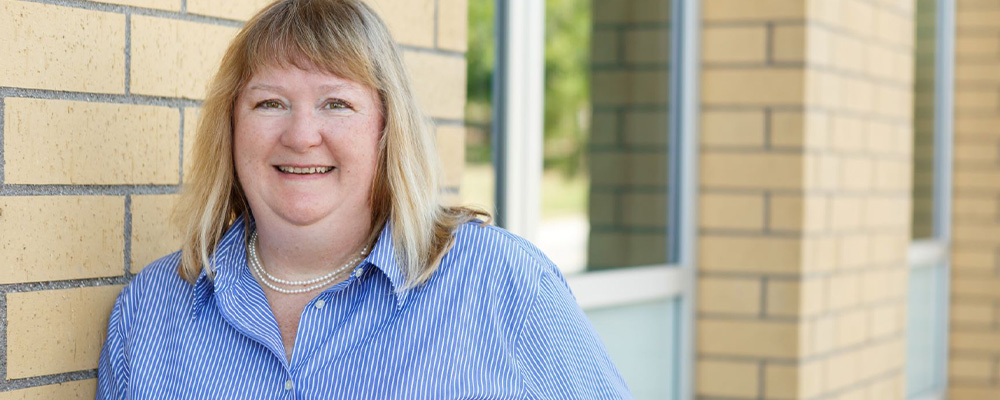
Congratulations to Karin Wiebe, recipient of our Master-Level Graduate Student award!
Karin has a wonderful record of service and contributions at the faculty, campus and community level along with excellent academic achievements.
QUESTION AND ANSWER WITH SESSION WITH Karin
What does receiving the award mean to you?
Receiving the Master-Level Graduate Student award holds a two-fold meaning for me: Foremost it stands as evidence of the strong support and positive learning experiences I have benefitted from at the Okanagan School of Education. Second, this award is also a signpost that tells me I am going in the right direction. I have watched some of my goals for the future shift and change over the past year, as the OSE challenges me to aim higher. My hope is this award will join other pieces of the puzzle that fosters positive and lasting benefits for BC’s English as an additional language learners.
What has your experience with the Okanagan School of Education been like?
UBCO’s OSE has afforded me opportunities to act in a variety of team-member and individual roles across the Okanagan campus and the provincial English as an Additional Language (EAL) community. The program has both shown me where my research interest is situated within the field of education, and encouraged me to find connections with other curriculum, teachers, and ways of knowing.
It has been a difficult year for many in the UBC academic community, and for others, almost impossible. I have been honoured to work alongside so many people who have met these challenges and become flexible, kind, and calm people in the face of a pandemic. I am surrounded by astonishing mentors, whom I aspire to emulate.
What is your research project?
This study looks for the successful self-driven language learning practices of newcomers in the British Columbia workplace. Using a second language acquisition (SLA) theoretical framework, participants’ language learning strategies, activities and perceptions will be gathered through semi-structured interviews and a focus group. This study will assist in developing a deeper understanding of English as an additional language learning in the workplace, uncover practices of self-driven language learning which will be shaped into a set of workplace learning principles for newcomers to use, and inform future workplace language development courses.
Why did you choose that topic?
As a worker in high-volume cultural tourism and agriculture tourism, I’ve been surrounded with multicultural and multilinguistic work environments for over 25 years. My coworkers and friends have always come from a variety of cultural backgrounds which fed my curiosity about other languages and cultures. In these workplaces, I observed challenges unique to language learners, and it was a natural progression for me to grow into English as an additional language (EAL) education where I felt I could make a positive difference for newcomers.
What difference do you hope your research will make?
This proposed research has great potential to further understanding of English as an additional language (EAL) learning and the Canadian workplace. Second, it will make explicit the successful tools and practices of self-driven language learning in workplace environments. Third, I will use the knowledge gained to shape a set of workplace learning principles for future newcomers to use. Next, the findings from this study can inform curriculum development for workplace language development courses for newcomers. This study also has the potential to impact curriculum development in general EAL courses for newcomers, inform programming choices for EAL course providers, suggest service provision needs for settlement agencies, influence workplace policies related to additional language training, and provide valuable professional development content for practitioners working with newcomers learning EAL. There is also an opportunity as a result of this study to create series of workshops, and participants’ perceptions of the effectiveness of those workshops could be explored. Finally, the study provides an inroad to discussion between newcomers and their employers about supportive and productive workplace learning environments.
What advice do you have for future graduate students?
If you’re considering graduate school, don’t hesitate. You will start with some ideas and goals for what you want to achieve in the program, but you will also come away with a constellation of possibilities and connections you couldn’t have anticipated.
If you are just starting the program, I encourage you to dig deep in your studies, and don’t give up on challenging concepts. Your hard work will pay off in understandings, friendships, connections, and a sense that you bring current, relevant skills to all your future endeavours.
Graduate Supervisor: Dr. Scott Douglas